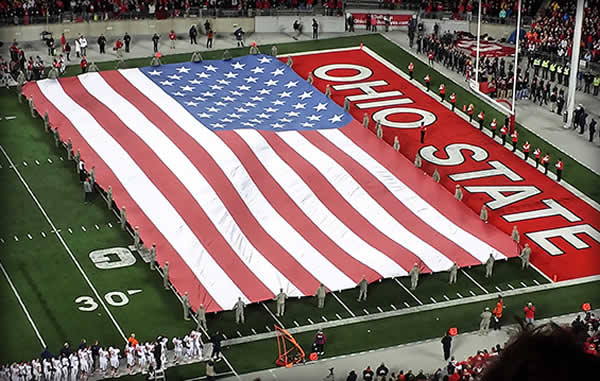Ohio residents hoping to wager on their favorite local sports teams will have to wait a bit longer before that can happen.
Larry Obhof, Ohio Senate President, recently disclosed that the Ohio sports betting bill (SB316) needs to be looked over by a committee. This will not happen until after the midterm elections in November. Obhof also revealed that the bill would not hit the floor this year.
This is expected given that SB316 is more of a placeholder bill, meaning it is only a basic framework for the Ohio sports betting market. The expectation was that lawmakers would fill in all the details concerning regulations, licensing qualifications, fees and whatever else in the next session.
Obhof is under the impression that the state legislature lacks the power to legalize sports betting. According to the Ohio Constitution, sports gambling is illegal and would require voter approval before anything can happen.
“I think there is a pretty serious legal question of – irrespective of the federal court decision this year—whether or not we could even have sports gaming here if that’s something the legislature could even authorize, even if they wanted to,” said Obhof.
Ohio has a strong market for sports betting with multiple franchises in the Cleveland and Cincinnati areas. Not to mention a strong NCAA presence at Ohio State University.
The presence of these leagues begs the question of whether or not integrity fees and data control rights will come into the mix. Both professional and collegiate league representatives have been lobbying in multiple states for these conditions in order to preserve their stake in any betting markets.
Obhof did not mention anything about integrity fees. He also didn’t hint at the subject even being on the minds of the Senate or House at this time.
There is an alternative sports betting bill floating around in the House, but it is also a placeholder bill. Many expect the House version to feature the same provisions as the Senate bill, but there is still the question of the legal grounds permitting any state legislature to legalize a new form of gambling.
The committee revisions could fix this issue by determining the state’s legal grounds towards sports betting. Obhof is not exactly a champion of sports gambling. In fact, he stated he would likely not sign off on a bill that would expand gambling in the state of Ohio.
“First, I think that some of the numbers that some of the proponents are talking about are probably exaggerated. Whether it is a revenue generator or not I think is a second question before you decide whether it’s legal or not, if it’s constitutional or not.”

